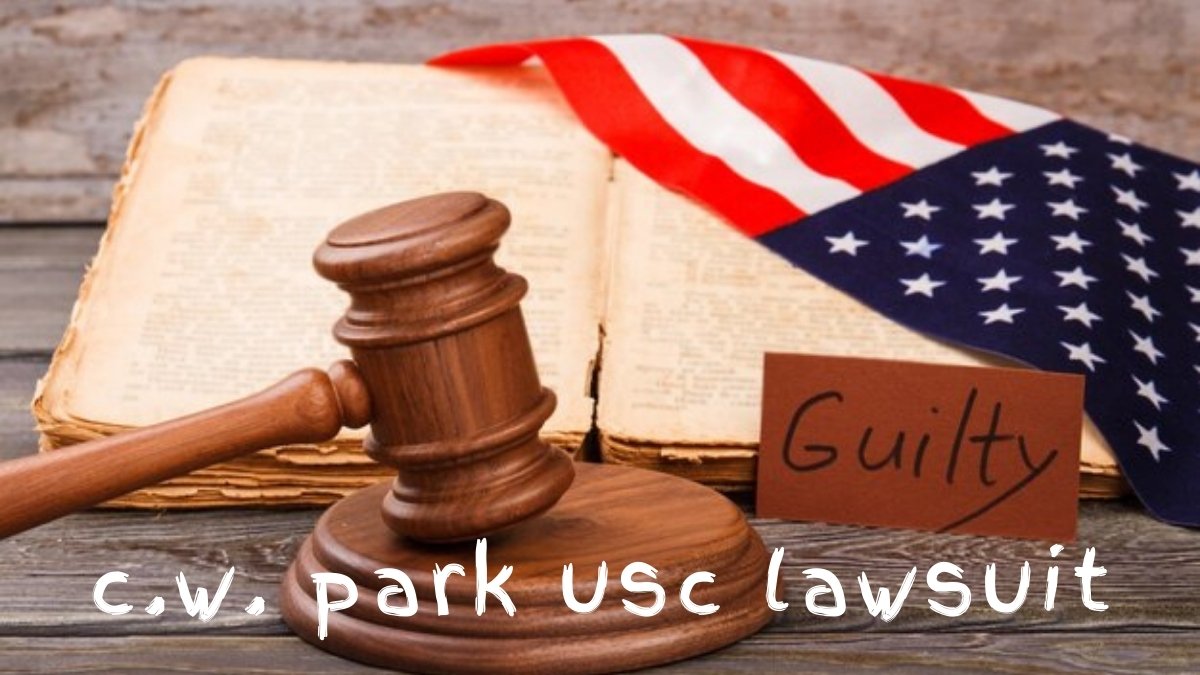The C.W. Park USC lawsuit against the University of Southern California (USC) has generated significant attention in both academic and legal circles. C.W. Park, a distinguished professor of marketing at the USC Marshall School of Business, filed a lawsuit against USC alleging unfair treatment and discrimination. The case highlights broader issues of workplace culture, academic freedom, and institutional accountability. In this article, we explore the details of the lawsuit, its background, and its potential implications for USC and the academic community.
Who is C.W. Park?
C.W. Park USC lawsuit is a prominent figure in the field of marketing and business research. As a professor at the USC Marshall School of Business, Park has contributed significantly to the university’s reputation, particularly in the areas of brand management and consumer behavior. His academic work is well-respected globally, making his legal battle with USC all the more noteworthy. His lawsuit sheds light on the challenges senior academics can face, even at elite institutions like USC.
Allegations in the C.W. Park Lawsuit
The core of Park’s lawsuit centers on allegations of age discrimination and retaliation. Park claims that USC discriminated against him due to his age, ultimately undermining his career and creating a hostile work environment. According to the lawsuit, USC allegedly engaged in actions that marginalized Park’s contributions and curtailed his influence in the business school. Furthermore, Park accuses the administration of retaliating against him after he raised concerns about his treatment, adding another layer to the legal conflict.
The Legal Basis for the Case
C.W. Park bases his lawsuit on both federal and state anti-discrimination laws. The Age Discrimination in Employment Act (ADEA), a federal law, protects employees over 40 from unfair treatment due to their age. In addition to the ADEA, Park’s lawsuit likely invokes California state law protections against workplace discrimination and retaliation. These legal frameworks provide the foundation for Park’s claims and will be critical in determining the outcome of the case.
USC’s Response to the Allegations
The University of Southern California has denied the allegations made by C.W. Park USC lawsuit, stating that they have acted appropriately in all matters related to his employment. USC’s defense likely focuses on showing that any actions taken regarding Park were based on legitimate, non-discriminatory factors. The university is also expected to argue that it did not engage in retaliation and that Park’s claims are unsubstantiated. As the lawsuit progresses, USC’s ability to present clear, evidence-based defenses will be crucial in countering Park’s accusations.
Impact on USC’s Reputation
The lawsuit has the potential to impact USC’s reputation, particularly within the academic community. Universities are often scrutinized for how they treat faculty members, especially those with long-standing careers and significant contributions to the institution. If the case reveals systemic issues related to discrimination or retaliation at USC, it could damage the school’s standing, both in terms of its public image and its ability to attract top faculty talent. On the other hand, if USC successfully defends itself, it may reinforce its reputation as an institution that upholds fairness and meritocracy.
The Role of Age Discrimination in Academia
Age discrimination is a growing concern in academia, where senior faculty members can sometimes face pressure to step aside for younger academics. In many cases, older professors may feel marginalized or overlooked, despite years of service and significant achievements. The C.W. Park USC lawsuit highlights the tension between respecting the contributions of senior faculty and addressing the evolving needs of academic institutions. The case could set a precedent for how universities handle age-related disputes in the future.
Academic Freedom and Retaliation Claims
Another key issue in the lawsuit is Park’s claim of retaliation, which touches on the broader concept of academic freedom. Retaliation occurs when an employer punishes an employee for engaging in legally protected activities, such as filing a complaint or speaking out against unfair treatment. In the context of academia, retaliation claims often intersect with concerns about academic freedom—the right of scholars to express their ideas and challenge institutional practices without fear of retribution. If Park’s claims of retaliation are upheld, it could signal a need for greater protections for academic freedom at USC and other institutions.
Possible Outcomes of the Lawsuit
There are several possible outcomes for the C.W. Park lawsuit. One possibility is that the case is settled out of court, with USC agreeing to provide financial compensation or other concessions to Park. Settlements are common in employment discrimination cases, as they allow both parties to avoid the costs and uncertainties of a lengthy trial. Another outcome is that the case goes to trial, where a judge or jury will determine whether USC violated anti-discrimination and retaliation laws. If Park wins, it could lead to significant changes in USC’s policies and practices, particularly regarding the treatment of senior faculty.
Broader Implications for Higher Education
The C.W. Park USC lawsuit could have broader implications for the higher education sector. If the case brings to light issues of age discrimination and retaliation at USC, it may prompt other universities to reevaluate their own policies and practices. The lawsuit may also encourage more faculty members to speak out about unfair treatment, leading to increased scrutiny of how academic institutions handle discrimination and retaliation claims. As universities face growing pressure to create more equitable and inclusive environments, the Park lawsuit could serve as a catalyst for change.
The Importance of Legal Protections for Faculty C.W. Park USC lawsuit
The lawsuit underscores the importance of legal protections for faculty members, particularly in areas related to discrimination and retaliation. Faculty members, especially those nearing the end of their careers, need assurance that they will not be unfairly treated based on their age or status. Legal protections such as the ADEA play a crucial role in safeguarding the rights of senior academics and ensuring that they can continue to contribute to their institutions without fear of retaliation.
Expert Insights on the C.W. Park USC lawsuit
Legal and academic experts have weighed in on the significance of the C.W. Park USC lawsuit. Many agree that age discrimination cases in academia are underreported, and this lawsuit could bring more attention to the issue. Some experts also note that universities must strike a delicate balance between honoring the achievements of senior faculty and fostering an environment where younger academics can thrive. The outcome of this case may shape how universities navigate these complex dynamics in the future.
Public Perception of the Case C.W. Park USC lawsuit
Public perception of the C.W. Park USC lawsuit is mixed. Some view Park as a victim of institutional discrimination, while others see USC’s actions as part of the normal course of managing an academic institution. Regardless of the outcome, the lawsuit has sparked important conversations about fairness, transparency, and accountability in higher education. Public interest in the case is likely to grow as more details emerge, and it may influence how universities are perceived in terms of their treatment of faculty members.
The Role of Faculty Unions and Advocacy Groups C.W. Park USC lawsuit
Faculty unions and advocacy groups play an important role in cases like C.W. Park’s lawsuit. These organizations often provide support to faculty members facing discrimination or retaliation, helping them navigate the legal system and advocating for their rights. Faculty unions also work to ensure that universities maintain fair and equitable employment practices. In the wake of this lawsuit, there may be increased efforts by unions to protect senior faculty members from age-related discrimination and retaliation.
Conclusion: What the C.W. Park Lawsuit Means for Academia
The C.W. Park USC lawsuit lawsuitagainst USC is more than just a legal battle—it represents broader concerns about age discrimination, retaliation, and academic freedom in higher education. As the case unfolds, it will shed light on how universities handle these issues and may lead to important changes in how faculty members are treated. Whether through a settlement or a trial, the outcome of this lawsuit will likely have lasting implications for USC and the wider academic community.











